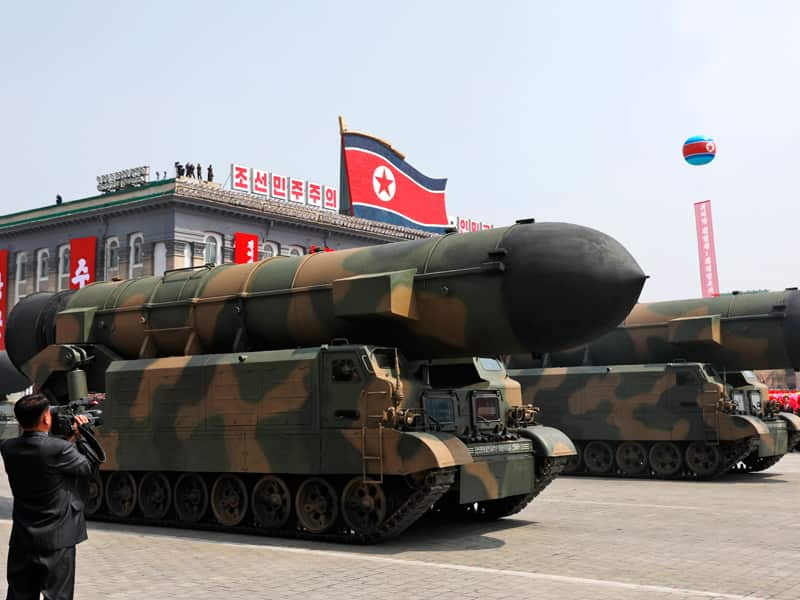Prime Minister Malcolm Turnbull on Tuesday said the nuclear capabilities of the North Korean regime had the potential to cause political instability well beyond the Asia Pacific region.
"[North Korea is a] reckless and dangerous threat to peace and stability in our region and, indeed, in the world," he said.
“If it were able to obtain [and] develop a missile that could travel as far as the United States with a warhead, or as far as Australia, then it obviously could threaten Australia and, indeed, the United States.
“My message is to Australians, that their government, my government, is committed to ensuring that the North Korean regime acts responsibly."
However the prime minister insisted the burden lay with China to ensure North Korea did not remain hostile.
“Because China is the nation that has the greatest leverage over North Korea, it has the greatest obligation and responsibility to bring North Korea back into a realm of at least responsibility in terms of its engagement with its neighbours," Mr Turnbull said.
“The eyes of the world are now on Beijing.
Watch: PM calls on China to help with North Korea
“We don't have the leverage that China does, we obviously don't have the military might that the United States does, but what we are able to do is to provide the solidarity and the influence we can in international forums and in our direct engagement with other nations.”
Mr Turnbull's comments were echoed by Opposition Leader Bill Shorten, who said the matter was a bipartisan one.
“No one can take a backwards step - North Korea is a rogue nation.
“I just want to say to Australians who are concerned when they see all the reports about tensions in this part of the world, when it comes to international security and dealing with North Korea, Liberal and Labor are fundamentally on the same page and that's the way it should be," Mr Shorten said.
Australian Strategic Policy Institute Executive Director Peter Jennings said that, if badly handled, tensions with North Norea could lead to war on the peninsula. “I’m not suggesting that’s inevitable, I think diplomacy has got some way to run yet, but we are looking at a very serious situation, no one should doubt that.
“I’m not suggesting that’s inevitable, I think diplomacy has got some way to run yet, but we are looking at a very serious situation, no one should doubt that.

The US, its allies and China are working together on a range of responses to North Korea. (AAP) Source: EPA
“If there is a war on the Korean peninsula this is going to have immediate and dire consequences for the Australian economy.”
“So much of our trade goes to north Asia that we will instantly suffer a serious economic downturn if there is a conflict."
Professor of Human Security and International Diplomacy at RMIT University, Joseph Siracusa, said he predicted “a very serious crisis” over the next seven to 10 days.
“The ball really is in Kim's court, he’d get to decide what to do next,” Professor Siracusa said.
He said Australia would answer any call for help if asked by America, as part of its obligations under the ANZUS treaty.
“I don’t see how the Australian Navy or Air Force could stay out of this, as a matter of fact, once they have been asked for help.
“There’s no doubt about it, the United States is counting on its friends and allies in this part of the world to be involved.
“I think initially it would be a support role, but I wouldn’t put it past a scenario of getting Australia involved in the live action," he said.
"Maybe cooler heads will prevail, it’s up to Kim.”
Meanwhile, those in Australia’s Korean community are wondering what will happen next.
“I have got families in Korea and I hope there is no war going on there, but I’m very worried at the moment,” said Terry Kim.
Daniel Lee said his father has been affected by what has been happening in his homeland
“My Dad’s roots are from North Korea so he’s quite fixated on the whole issue.”
When asked how he thinks the issue will end, Mr Lee said it was up in the air
"Well, with Donald Trump up there in power I don’t really know."
Share




